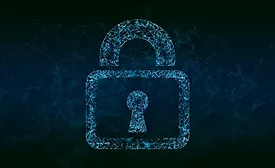Cybersecurity
Security 500 Thought Leader Profiles
Kevin Wilkes: Securing the Arts
Chief Security Officer
November 5, 2020
Security 500 Thought Leader Profiles
Rob Schnettler: The Gold Bar Standard
Senior Director of Security and Guest Services
November 5, 2020
Security 500 Thought Leader Profiles
Christopher Schleder: One-Team Mentality
Director of Security Services
November 5, 2020
Security 500 Thought Leader Profiles
Treyler Ray: Securing the Skies
Chief Security Officer
November 5, 2020
Security 500 Thought Leader Profiles
Luke Manuel: Doing Good in Healthcare
Security Director
November 5, 2020
Security 500 Thought Leader Profiles
Joey Hunter: Securing Banning
Director of Security, Safety and Emergency Preparedness
November 5, 2020
Sign-up to receive top management & result-driven techniques in the industry.
Join over 20,000+ industry leaders who receive our premium content.
SIGN UP TODAY!Copyright ©2026. All Rights Reserved BNP Media.
Design, CMS, Hosting & Web Development :: ePublishing











